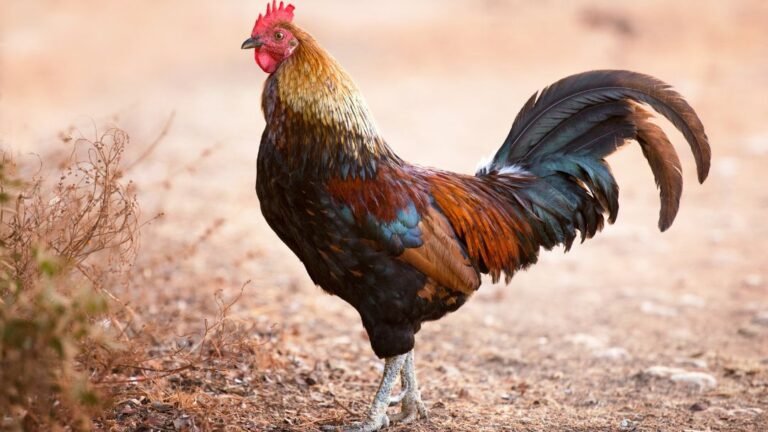The top contenders for best egg-laying chicken breeds are known for prolific laying and high-quality eggs. If you’re looking to start a backyard flock and prioritize egg production, it’s important to choose the right chicken breed.
Not all chickens are created equal when it comes to egg-laying capabilities. Some breeds are more proficient at producing eggs consistently and in larger quantities than others. We will discuss some of the top contenders for the best egg-laying chicken breeds.
These breeds are renowned for their ability to lay a high number of quality eggs, making them ideal for those seeking a regular supply of fresh eggs. So, let’s dive into some of the breeds known for their prolific egg-laying habits and explore their unique characteristics and advantages.
**factors To Consider When Selecting Egg-laying Chicken Breeds**
When deciding on the perfect egg-laying chicken breeds for your backyard flock, several factors need to be taken into consideration. These factors will play a crucial role in determining the success and productivity of your chickens. From climate suitability to behavior and temperament, each aspect has an impact on how well your chickens will thrive and provide a sustainable supply of eggs. Let’s delve into these factors in detail:
Climate Suitability
One of the foremost considerations when selecting egg-laying chicken breeds is climate suitability. Different breeds have varying tolerances to extreme temperatures and weather conditions. Some breeds may excel in colder climates, while others may thrive in hotter regions. It’s important to assess your local climate and choose breeds that can withstand and adapt to the prevailing weather. This ensures that your chickens remain healthy and continue to lay eggs consistently throughout the year.
Space Requirements
The available space and coop size should also be taken into account when choosing egg-laying chicken breeds. Some breeds require more space and are more active, while others can adjust well to smaller spaces. If you have limited space, it’s advisable to opt for smaller breeds that do not require excessive room for roaming and perching. On the other hand, larger breeds may require dedicated areas for nesting and roosting.
Feed Efficiency
Feed efficiency plays a significant role in the overall management and cost-effectiveness of your flock. While all chickens require consistent access to balanced nutrition, certain breeds have better feed conversion rates than others. Breeds that can efficiently convert feed into eggs are not only economical but also result in reduced wastage. Assessing the feed efficiency of different breeds ensures that you can optimize feed consumption and maintain a healthy, productive flock.
Disease Resistance
Another crucial factor to consider when selecting egg-laying chicken breeds is disease resistance. Some breeds are naturally more resistant to common poultry diseases and parasites. Opting for such breeds can reduce the risk of disease outbreaks and the need for frequent medication or treatments. Disease-resistant breeds have a higher likelihood of staying healthy and maintaining consistent egg production, contributing to the overall longevity and profitability of your flock.
Egg Production Rate And Size
The primary objective of raising egg-laying chickens is to ensure a steady supply of eggs. Different breeds have varying egg production rates and sizes. Some breeds are known for their high egg production rates, while others prioritize larger-sized eggs. Consider your specific needs and preferences when selecting breeds. If you require a large number of eggs, prioritize breeds with high production rates. Alternatively, if you prefer larger-sized eggs, choose breeds known for their ability to consistently lay bigger eggs.
Behavior And Temperament
Finally, the behavior and temperament of the chicken breeds should not be overlooked. Some breeds are more docile and friendly, making them easier to handle and interact with. Others may have more aggressive tendencies or may be flighty in nature. Assess your comfort level and expertise in handling chickens and choose breeds that align with your requirements. Opting for breeds with favorable behavior and temperament will ensure a more enjoyable and stress-free chicken-raising experience.
**1. Rhode Island Red**
The Rhode Island Red is one of the most popular and beloved chicken breeds among backyard chicken enthusiasts. With their stunning appearance, excellent egg-laying capabilities, and friendly demeanor, Rhode Island Reds have rightfully earned their place as a top contender in the world of egg-laying chickens.
Characteristics And Appearance
Rhode Island Reds are known for their striking deep red feathers that shine in the sunlight. These medium to large-sized birds have a muscular build with a clean, firm body. The breed is extremely hardy, making it well-suited for various climates and environments. Their comb and wattles are a rich, vibrant red, which adds to their overall attractiveness.
Egg Production Capabilities
When it comes to egg production, Rhode Island Reds are true champions. These dedicated layers consistently provide their caretakers with a bountiful supply of large brown eggs. On average, they can lay around 200-300 eggs per year. The eggs have sturdy shells and are known for their exceptional flavor and quality.
Temperament And Behavior
Not only are Rhode Island Reds excellent egg-layers, but they also possess a calm and docile temperament. They are known for being friendly and tolerate humans, making them a great choice for families with children. While they may establish a pecking order within their flock, they generally get along well with other chicken breeds.
Additionally, Rhode Island Reds are curious and intelligent birds, known to be quite inquisitive. They are quick learners and adapt well to different living conditions. With proper socialization and care, they can become affectionate with their owners and bring joy to any backyard.
Tips For Raising Rhode Island Reds
If you are considering raising Rhode Island Reds, here are some helpful tips:
- Provide a spacious and secure coop to accommodate their active nature.
- Offer a well-balanced diet with plenty of fresh water, high-quality feed, and occasional treats.
- Ensure regular health checks and provide appropriate vaccinations to keep them in optimal condition.
- Provide a comfortable roosting area and nesting boxes to encourage consistent egg-laying.
- Allow the Rhode Island Reds enough space to roam and forage, as they will happily spend their time scratching the ground for insects and vegetation.
- Regularly clean their living area to maintain hygiene and prevent the spread of diseases.
By following these tips, you can ensure that your Rhode Island Reds lead a happy and healthy life, rewarding you with delicious eggs and enjoyable companionship.
**2. Leghorn**
2. LeghornLeghorns are renowned for their exceptional egg-laying abilities, making them a popular choice among backyard chicken enthusiasts. This breed, originating from Italy, is known for its remarkable productivity and striking appearance. In this section, we will delve into the key characteristics and appearance of Leghorns, their impressive egg production capabilities, their temperament and behavior, and provide some useful tips for raising these remarkable chickens.Characteristics And Appearance
Leghorns are relatively smaller in size compared to other chicken breeds, with an average weight ranging from 4 to 5 pounds for hens and 5.5 to 6.5 pounds for roosters. They have a sleek and streamlined body shape, accentuated by their upright stance and well-developed breast. These chickens come in various color varieties, including White, Brown, and Black, with the White Leghorns being the most common and widely recognized.Egg Production Capabilities
One of the main reasons why Leghorns are cherished is their outstanding egg-laying abilities. They are among the best egg layers, consistently producing a large number of eggs throughout the year. On average, a Leghorn hen can lay up to 280 to 320 eggs annually, with some exceptional individuals even surpassing that number. These eggs are typically medium to large in size, with a white shell that is both sturdy and attractive.Temperament And Behavior
Leghorns are known for their energetic and active nature. They are independent and prefer to explore their surroundings, making them excellent foragers. While they can be a bit flighty and wary of human interaction, with proper handling and socialization from an early age, they can become friendly and more manageable.These birds are also known for their vocal nature, often producing a range of sounds, including loud crowing from the roosters. They tend to be alert and will sound the alarm if they sense any potential threats. Additionally, Leghorns thrive in free-range environments where they have ample space to exhibit their natural behaviors.Tips For Raising Leghorns
Raising Leghorns can be a rewarding experience, but it is important to keep a few key considerations in mind. Here are some tips to ensure you provide the best care for your Leghorn chickens:- Provide sufficient space: Leghorns are active birds that require ample space to roam and forage. Ensure they have enough space in their coop and access to a secure outdoor area.
- Secure fencing: Due to their tendency to be flighty, it is essential to have secure fencing around their enclosure to prevent them from escaping.
- Feed a balanced diet: Leghorns have high energy levels and need a well-balanced diet to support their egg production. Provide them with a commercial layer feed supplemented with fresh greens and protein-rich treats.
- Regular health checks: Like all chicken breeds, Leghorns should receive routine health checks to monitor for any signs of illness or parasites. Consult with a poultry veterinarian to ensure their well-being.
- Provide dust bathing areas: Leghorns, like many chickens, need access to a dust bathing area to keep their feathers clean and help control parasites.
**3. Sussex**
The Sussex chicken breed is a popular choice for backyard chicken keepers due to its charming characteristics and excellent egg-laying capabilities. Known for its striking appearance, enjoyable temperament, and consistent egg production, the Sussex breed has earned its place among the top contenders for the best egg-laying chicken breeds.
Characteristics And Appearance
The Sussex breed is easily recognized by its distinctive appearance. These medium-sized chickens have a broad and deep body, which gives them a sturdy and robust quality. They have a single comb and wattles, along with medium-sized, round and red eyes. One of the most striking features of the Sussex breed is their plumage. They come in a variety of color patterns, including white, red, speckled, and brown. Their feathers are dense, and their legs are clean, meaning they have no excessive feathering, making them easier to maintain.
Egg Production Capabilities
If you are looking for a chicken breed that can provide you with a consistent supply of fresh eggs, the Sussex breed is an excellent choice. These birds are known for their exceptional egg-laying capabilities, often producing large brown eggs throughout the year. On average, a Sussex hen can lay around 250-300 eggs per year, depending on various factors such as age, diet, and overall health. The high egg production rate of the Sussex breed makes them an ideal option for those who enjoy having a steady supply of eggs for cooking, baking, or selling.
Temperament And Behavior
The Sussex chickens have a friendly and docile temperament, which makes them an ideal breed for beginners or families with children. They are known to be calm, gentle, and easily tamed, allowing for easy handling and interaction. Sussex chickens are not particularly flighty or prone to roaming, making them well-suited for free-range or confined environments. They tend to get along well with other chicken breeds and show minimal aggression towards humans or other animals, which makes them a popular choice for mixed flocks. Their friendly nature also makes them a great addition to backyard flocks where they can bring joy and entertainment with their calm demeanor.
Tips For Raising Sussex
Raising Sussex chickens can be a rewarding experience, and here are a few essential tips to ensure their well-being and optimal egg production:
- Provide a spacious coop: Sussex chickens enjoy ample space to move around and roost comfortably. A coop with at least four square feet of floor space per bird is recommended.
- Offer a balanced diet: To support their egg production and overall health, provide a well-balanced diet of quality poultry feed along with fresh greens, fruits, and access to clean water at all times.
- Provide suitable nesting boxes: Sussex chickens prefer secluded and quiet nesting areas to lay their eggs. Place several nesting boxes in the coop, filled with clean bedding material such as straw or wood shavings.
- Ensure proper ventilation: Good airflow within the coop is essential to prevent heat stress and respiratory issues. Install vents or windows in the coop to maintain a suitable temperature and fresh air circulation.
- Maintain a regular cleaning routine: Regularly clean the coop and remove soiled bedding to prevent the buildup of bacteria and parasites that can affect the health of your Sussex chickens.
- Implement predator protection: Keep in mind that Sussex chickens, like any other poultry, are vulnerable to predators. Use sturdy fencing, locks, and other protective measures to keep them safe from potential predators.
By following these tips and providing your Sussex chickens with a comfortable and nurturing environment, you can ensure their well-being, happiness, and optimal egg-laying performance.
**4. Australorp**
If you’re looking for a chicken breed that excels in both egg production and temperament, the Australorp is an excellent choice. They are known for their versatility and adaptability, making them popular among backyard chicken keepers and commercial poultry farmers alike. In this section, we will delve into the characteristics and appearance, egg production capabilities, temperament and behavior, as well as provide some tips for raising Australorps.
Characteristics And Appearance
The Australorp breed originated in Australia and is renowned for its striking appearance. These chickens have a sleek, black feathering that glistens beautifully in the sunlight. The breed is medium-sized, with feathered legs and a moderately large single comb. Australorps have a robust and sturdy body structure, making them especially resilient to various weather conditions. Their attractive appearance and friendly disposition make them a delightful addition to any flock.
Egg Production Capabilities
If you are looking for a chicken breed that excels in egg production, Australorps will not disappoint. They hold the world record for egg-laying, with a hen named “Miracle” setting a remarkable record of laying 364 eggs in 365 days. On average, Australorps lay approximately 250 to 300 large brown eggs per year. Their consistent and reliable egg production makes them highly valued among egg enthusiasts and those who seek a sustainable source of fresh eggs for their households.
Temperament And Behavior
Australorps are known for their docile and friendly nature, making them an excellent choice for families and backyard flock owners. Unlike some other breeds, Australorps are calm and easygoing, which makes handling and interacting with them an enjoyable experience. They also tend to be quite affectionate, often seeking out attention from their caretakers. Their amiable behavior makes it easier to integrate them into existing flocks and ensures a harmonious dynamic within the coop.
Tips For Raising Australorps
If you decide to raise Australorps, here are a few tips to help you make the most of your experience:
- Provide a spacious and secure coop: Australorps require ample space to move around comfortably and exercise. Ensure that their coop is well-ventilated, predator-proof, and equipped with roosting bars for resting.
- Offer a balanced diet: To support their excellent egg-laying capabilities, it is important to provide Australorps with a balanced diet. This includes a mixture of food that consists of high-quality commercial chicken feed, fresh vegetables, fruits, and access to clean water at all times.
- Regular health checks: Monitor the health of your Australorps regularly. Keep an eye out for signs of illness, mites or other parasites, and provide necessary vaccinations or treatments as recommended by a veterinarian.
- Allow for free-ranging: Australorps enjoy foraging and exploring their surroundings. Whenever possible, allow them to free-range in a safe and supervised environment, as this will contribute to their overall well-being.
By following these tips, you can ensure that your Australorps lead a happy and productive life, providing you with a steady supply of delicious eggs while enriching your backyard with their delightful presence.
**5. Plymouth Rock**
Characteristics And Appearance
Plymouth Rocks, also known as Barred Rocks, are a popular breed of chicken known for their striking appearances and excellent characteristics. These medium-sized birds have beautiful black and white striped feathers, giving them a distinctive and eye-catching look. Sporting a sturdy and compact body, Plymouth Rocks exhibit a well-rounded appearance with a deep, full breast.Egg Production Capabilities
When it comes to egg production, Plymouth Rocks are impressive contenders. These hens are known for being reliable layers of brown eggs, making them a favorite among backyard chicken keepers. On average, a Plymouth Rock hen can lay up to 200-280 eggs per year, depending on individual care, nutrition, and environmental factors. Their consistent egg-laying abilities make them a valuable addition to any flock.Temperament And Behavior
Plymouth Rocks are not just admired for their good looks and egg-laying capabilities, but also for their friendly and docile temperament. These chickens are known for their calm and easy-going nature, making them a perfect choice for families with children or novice chicken keepers. Plymouth Rocks are generally sociable, and with proper handling and socialization, they can become quite affectionate towards their owners. Their amiable demeanor makes them a joy to have in the backyard.Tips For Raising Plymouth Rocks
If you’re considering raising Plymouth Rocks, here are some tips to ensure their well-being:- Provide adequate space: Plymouth Rocks appreciate space to roam and explore. Aim for a minimum of 4 square feet of space per bird in the coop, along with ample outdoor space to scratch and forage.
- Offer a well-balanced diet: Ensure your Plymouth Rocks receive a balanced diet consisting of high-quality chicken feed, supplemented with scraps, greens, and grit. This will provide them with the necessary nutrients for healthy growth and optimum egg production.
- Provide suitable housing: Construct or purchase a sturdy and well-ventilated chicken coop to protect your Plymouth Rocks from predators and harsh weather conditions. Make sure the coop has proper roosting bars and nesting boxes for their comfort.
- Practice regular healthcare: Keep a close eye on the health of your birds and perform routine health checks. Administer vaccinations, deworming, and provide them with access to fresh water at all times.
- Allow for socialization: Plymouth Rocks are social creatures, so allow them opportunities to interact with other chickens or even other animals if possible. This will enhance their mental well-being and overall happiness.
**tips For Maximizing Egg Production**
Introduction:
When it comes to raising chickens for their eggs, maximizing egg production is key. The more eggs your flock produces, the better it is for your homestead or farm. In this section, we will share some valuable tips to help you optimize egg production in your chicken breeds and ensure a steady supply of fresh, high-quality eggs. From providing proper nutrition to implementing effective flock management practices, these tips cover all aspects of maximizing egg production.
Providing Proper Nutrition:
Proper nutrition is essential for healthy hens and optimal egg production. A balanced diet rich in essential nutrients ensures that your chickens have the energy and resources they need for egg-laying. Here are some tips for providing proper nutrition:
- Offer a commercial layer feed that is specifically formulated for egg-laying chickens. These feeds contain the right balance of protein, calcium, and other essential nutrients.
- Supplement the diet with fresh fruits, vegetables, and kitchen scraps. Chickens love treats like leafy greens, carrots, and cucumbers, which provide additional vitamins and minerals.
- Ensure a constant supply of clean, fresh water. Dehydration can negatively impact egg production, so make sure your hens always have access to clean water.
Maintaining Optimal Environment And Housing Conditions:
The environment and housing conditions play a crucial role in maximizing egg production. Here’s what you need to do:
- Provide a clean and spacious coop for your hens. A crowded or dirty living space can cause stress and decrease egg production.
- Ensure proper ventilation in the coop to maintain good air quality. Poor ventilation can lead to respiratory issues and lower egg production.
- Install cozy nesting boxes with soft bedding for your hens to lay their eggs in. This provides a comfortable and safe environment for egg-laying.
Ensuring Adequate Health Care And Disease Prevention:
A healthy chicken is a productive chicken. To ensure maximum egg production, pay attention to the health and wellness of your flock. Here are some essential tips:
- Schedule regular check-ups with a veterinarian to monitor your chickens’ overall health. Vaccinations and deworming treatments are essential for preventing diseases that can impact egg production.
- Practice good biosecurity measures by keeping your coop clean and free from pests. Regularly inspect your flock for signs of illness, such as abnormal behavior or reduced egg production.
- Provide your chickens with a dust bath area to help them stay clean and control parasites. Dust baths are also a natural way for hens to keep their feathers in good condition.
Implementing Effective Flock Management Practices:
Efficient flock management is vital for maximizing egg production. Here’s how you can ensure effective flock management:
- Keep track of your hens’ laying patterns and egg production rates. This information will help you identify any changes in their egg-laying behavior and make necessary adjustments.
- Monitor the age of your chickens and plan for replacements. As hens age, their egg production declines, so replacing them with younger ones will help maintain high production levels.
- Minimize stress in your flock by avoiding sudden changes or disturbances. Chickens are sensitive creatures, and stress can disrupt their egg-laying routine.
Collecting And Storing Eggs Properly:
The way you handle and store your eggs can also impact their quality and freshness. Follow these tips to ensure proper egg collection and storage:
- Collect eggs regularly to prevent them from becoming dirty or damaged. Ideally, collect eggs multiple times a day to ensure freshness and minimize the risk of breakage.
- Handle eggs gently and avoid washing them, as this removes the natural protective coating. Instead, wipe off any dirt or debris with a clean cloth before storing.
- Store eggs in a cool and dark place, such as a refrigerator, with the pointed end facing downwards. This helps maintain their freshness and extends their shelf life.
Conclusion
To sum it up, these top contenders for the best egg laying chicken breeds offer a range of benefits for those seeking fresh eggs. Whether it’s the prolific Rhode Island Red, the docile Sussex, or the versatile Australorp, there’s a breed tailored to every preference.
Don’t forget to consider factors like temperament, climate suitability, and egg color before making your selection. Happy chicken keeping and enjoy those delicious homegrown eggs!




